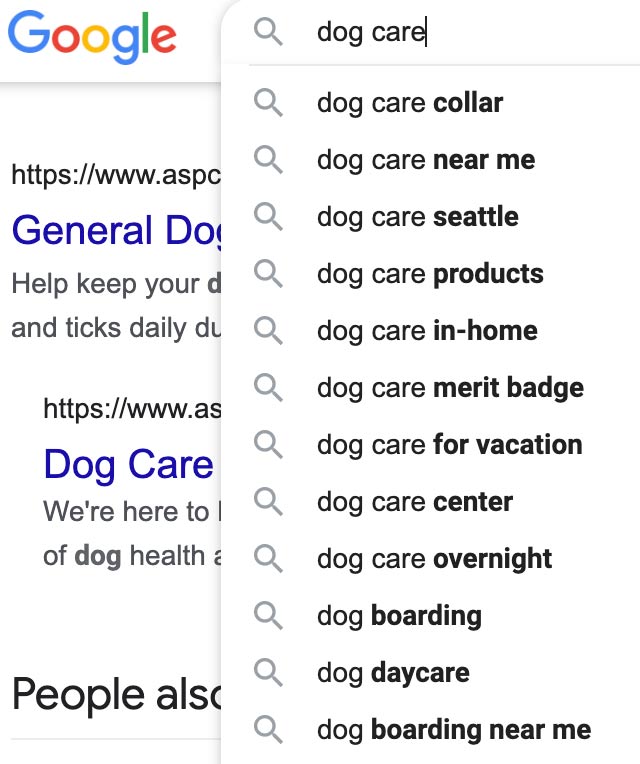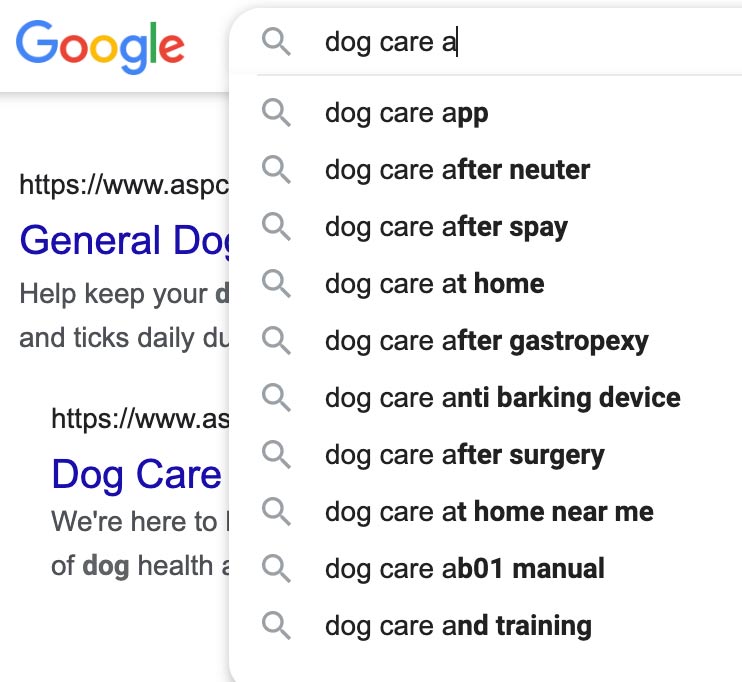
Keyword tools have become very popular. They let you quickly search a topic and get back a quick list of keywords. They also will show you the search volume on that keyword or phrase. This sounds great right, well yes and no.
Why Big Data Tools don't Have All the Information
We often rely on popular tools like Semrush, Moz and Ahrefs to give us this data and help us analyze it. Now these tools can be helpful, but they also don't have a complete data set, and here's why.
The are working with a very small subset of the data, so their data is incomplete. Now they do have a lot of data, but it pales in comparison to Google's data. There are about 4 billion searches per day on Google so to get a complete data set we need to go straight to the source or at least the largest one.
They are not nearly as good as Google at finding semantically searches. By that I mean different search words or phases that mean the same thing. Like the phase "dog care" vs "How to care for your dog". These are different searches but they mean the same thing.
They also are not as good at accounting for adjacent searches. These are searches that can answer multiple questions in one search. Like the multiple subjects that are covered in "How to care for a dog". There are many adjacent searchers here that one article can rank for, to get more traffic.
Why Big Data Tools are Pointing You in the Wrong Direction
These tools typically will show dramatically lower search volumes on keywords that are not in the main stream of bigger search volumes. This leads you to miss smaller yet very relevant keywords and only see the keywords from higher search volumes.
There are some many top ranking articles for higher volume keywords these days that it is not practical to rank for many of these keywords and phrases. So we need to be able to search for the full list of keywords that give us all the levels of keyword search volumes.
What Big Data Tools are Good For
What these tools are good at is helping you get ideas and explore keywords. There are also many other good features that these tools offer like site audits. They go above and beyond what Google Search Console will find when is comes to errors and link tracking on your site. They also give you a list of all your backlinks so you can keep track of your backlinks profile.
Tools like Semrush also have cool features like there volatility sensor that looks across different industries during a core update. This will show you what sites were most affected by recent algorithm updates.
Use Google Search Suggestions for more Accurate Keywords
To do a more refined keyword research we can simply use Google search suggestions.

You go to Google, start to do a search and type your topic to find relevant keyword suggestions on that topic.

Then to get a full spectrum of keywords on that topic you got through the alphabet, each letter at a time "a" through "z" to see a more complete list of suggestions.
Using these keywords you can make a much more informed decision on the best use of your time for building a brand and content. Watch what results that come up for the keyword search and see where your content will have the best chance of ranking for that search term.
These results will give you the most up to date search queries on what people are looking for. So if something is trending Google will suggest it based on search volume.
Final Thoughts
We tend to assume with all the technology out there that an automated process is going to have the best result. While sometimes this is true. For now finding well crafted keywords is still going to require some leg work. By using live results and some common sense you'll be getting the best keyword research for your situation. Then you can leverage these tools to assist in the research process as needed.